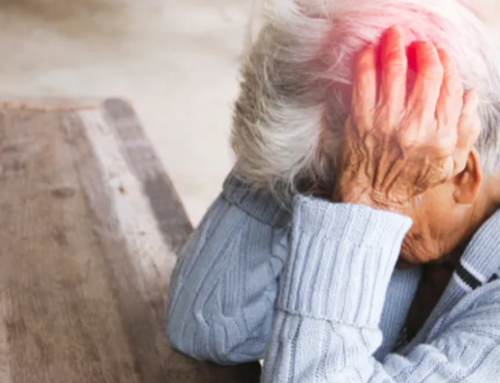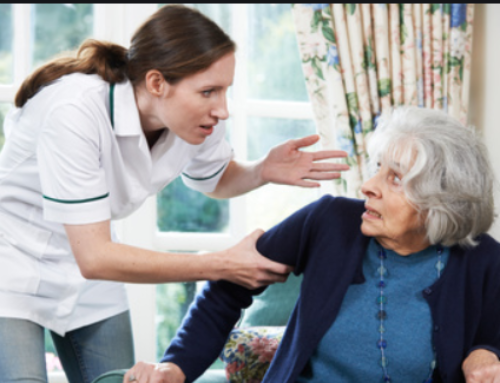Signs Of Physical Abuse Being Inflicted On The Elderly
Many of us here in Nevada trust our elders in the care of a nursing home. Sadly, elderly patients and residents are subjected to relatively high levels of physical abuse in nursing home environments. They are one of the most vulnerable populations for abuse, since they are often at the complete mercy of those who care for them. Many patients may have mental impairments that make it difficult for them to understand what is happening, or to tell loved ones about the abuse that’s taking place. In some cases, the family has to monitor the elder to finally confirm that physical abuse is happening at the group facility.
It’s important to be on the lookout for these signs so that you can act fast to prevent future abuse, keep your loved ones safe, and hold the abusers responsible.
What Does Elder Physical Abuse Look Like?
Elder physical abuse is defined as:
- any form of intentional physical harm that is inflicted on a resident and causes physical harm or trauma.
- the willful infliction of injury, unreasonable confinement, intimidation or cruel punishment with resulting physical harm, pain, or mental anguish or deprivation by a person, including a caregiver, of goods or services that are necessary to avoid physical harm, mental anguish, or mental illness
The abuse can take any number of forms, but the most common forms of abuse we see in our nursing abuse cases here in Nevada include:
- hitting, slapping, punching
- striking with objects
- rough or aggressive handling of the patient
- improper use of physical restraints
- improper use of chemical restraints
- sexual abuse, including indecent exposure, unwanted touching, and sexual assault
Sadly, those that have verbal or mental impairments are the most prone to this type of abuse, as abusers in these adult care facilities know to target victims who are less likely to speak out or fight back. Even patients who can still communicate are often afraid to speak out against their abusers, or they try to downplay their injuries to “not cause trouble”. It’s important that we empower and protect our elders since the nursing home is legally obligated to provide safe and secure care. Failure to do so is negligence or maltreatment on the part of the staff!
If you are a family member of a patient in elder care, there are a few signs you can look out for to see if physical abuse is taking place.
- Explaining away various injures. Your loved one may be trying to justify unusual injuries to keep you from worrying, or the staff or certified nurse assistants may attempt to explain the injuries as a result of a slip and fall. Of course our elders are naturally more vulnerable for slip and fall risk (which is covered under a different type of case, a slip and fall injury a.k.a. premises liability case), but when this occurs too frequently it can be a sign that something isn’t right.
- Flinching away from certain people or movements. One of the most common forms of abuse is by striking the patient since even a hard slap to the face or body is very unlikely to leave a mark unless it is done with extreme force. Since there are no physical signs visible, try to notice if your loved one becomes extremely uncomfortable when certain staff enters the room, or when there are sudden movements close to their face and body.
- Emotional disturbance and irritation. If your loved one is acting erratically or is becoming extremely emotionally sensitive, this could be related to their health conditions but also related to physical abuse taking place. Physical abuse is sometimes accompanied by emotional manipulation or financial exploitation, so that the elderly patient may start to feel overwhelmed and helpless (and start lashing out).
- Excess use of physical restraints. Physical restraints and equipment may be necessary for some patients, but in many cases, it is more appropriate and safe to use medications and other soothing techniques to help a patient remain calm. The use of restraints can lead to physical injuries when they are fought against. This is especially true in the elderly due to the fact that their bones are not as strong as a normal adult would be, and it can be particularly traumatizing for the patient when it happens. One sign that your loved one has been restrained is bruising around the wrist. The bruising may be thing lines or even obvious finger marks. Keeping an eye out for this kind of bruising can help you to identify if this type of activity is being done against your loved one.
- Bruises and marks under clothing. In cases where extreme physical violence occurs, abusers tend to cause the injury in areas that are usually covered by clothing. One way to make sure that this isn’t occurring is to offer to bathe your loved one or to help them change clothes, as long as your elder feels comfortable enough to do so. If this is something they’re not comfortable with, you can also check their skin by offering a foot or back massage. This may seem like a roundabout way of finding out about the abuse but it is often necessary, since again elderly patients can be afraid, embarrassed, or feeling like “too much of a bother” to tell others about their experiences.
Finally, of course, there is a situation where your loved one may tell you directly that they are being hurt. If they do so at any point, be sure to express your belief in their statement and to take the situation seriously, even if there are no visible signs of abuse taking place. It’s sad to think about it, but it is really not uncommon for physical maltreatment and other forms of negligent abuse to happen in nursing homes. Take your loved one seriously and seek the assistance of a legal professional immediately! Nursing homes can be sued for violating their duty to their patients in physical, emotional, and financial abuse cases.
In fact, in the most extreme of situations, they may even suffer a heart attack or stroke in the process, which could lead to a wrongful death case.
Under no circumstances should you attempt to communicate with the nursing home staff or management about the abuse, since even the most well-meaning staff will still be working to protect the interests of the nursing home. Instead, know that you have the right to be represented by a lawyer in these cases, and to have their help once you do decide to meet with the nursing home directly.
When to call a Nevada Personal Injury Attorney
It can be very difficult to identify abuse being done to your loved one, especially if they are not able to share the information with you directly. If you have any concerns that this may be occurring it is best to take action immediately. As experienced elder abuse and personal injury lawyers in Nevada, we have dealt with hundreds of physical abuse cases here at Gazda & Tadayon, and can help you gather information to build your case.
We have your best interests in mind, and we can work with you to keep your loved one safe and hold the nursing home responsible if abuse of any kind is found to be taking place. Schedule a free consultation with us today!






